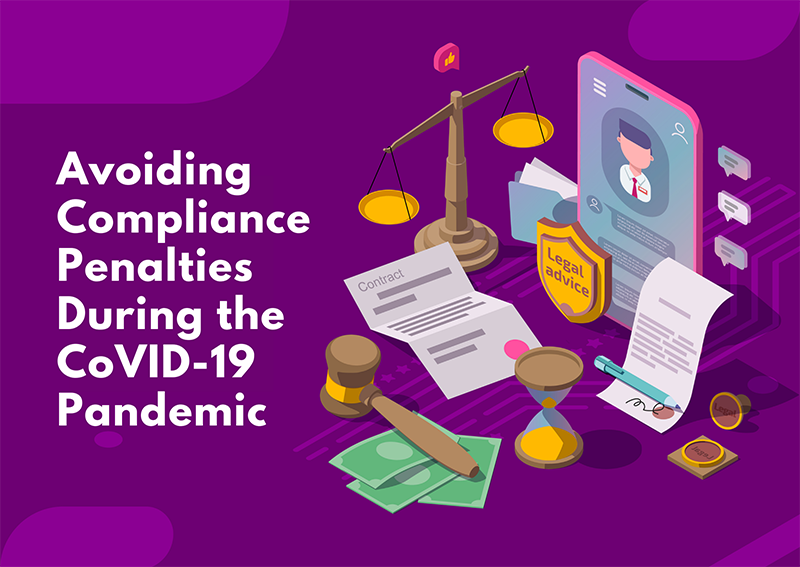[vc_row][vc_column][vc_column_text]Staying compliant during a pandemic can be a daunting task for organizations and even more so for managers. They have to handle logistics and other business activities remotely and continue to stay compliant with their practices and ethics during this difficult time. Handling statutory compliance is something organizations will have to deal with even during stressful times like these to ensure that all business is conducted ethically and the well-being of their employees is taken care of.
Managers can get assistance from compliance services to ensure that compliance risk is contained. Some very effective practices that managers can implement and follow themselves to effectively mitigate the aspect of compliance risk include:
Workplace Preparedness
When organizations reopen workplaces for their employees, they must ensure that various labour related compliances are met. The Quality Council of India has the scheme to help any organisation assess its preparedness to restart and run operations safely against COVID-19. The scheme, which is the Workplace Assessment for Safety and Hygiene (WASH), provides organizations a comprehensive assessment of whether the workplace adheres to safety norms against CoVID-19 and allows organizations to call back their workforce.
Compliance risk assessment
Conducting compliance risk assessments periodically should be a top priority for organizations. Despite the adverse circumstance, organizations must look to be at the top of their game. Ensuring that regular compliance audits are conducted to review aspects like compliance preparations, security policies and protocols, user accessibility, and risk management procedures can go a long way in ensuring that risk is mitigated.
(Read more: Compliance during the lockdown what you need to know)
Revising Existing Policies
The impact of CoVID- 19 on the global marketplace was unprecedented. Organizations had to hurry to implement fresh protocols, policies, and practices, ushering in a new normal. When the economy returns to work as offices and organizations open up, fresh protocols will have to be implemented in light of these developments. New training policies and employee communications may be necessary for the workforce, including revising existing ones to account for scenarios involving CoVID-19 and similar possible scenarios in the future. While it may prove challenging for employees initially, clear communication of the necessity of these revised protocols at an early stage and assessing their resistance to it can go a long way in implementing these protocols quickly.
Workforce planning
Workforce planning is another practice that management can use to ensure compliance in an organization during a crisis. Structuring tasks and a workforce, building work schedules so that specific employees come in on specific days, aligning business needs and requirements with that of an organization’s workforce, handling the recruitment, training, and retention all come under workforce planning. The organization must also make sure it can comply with legislative, regulatory, service, production requirements and organizational objectives. This will go a long way in ensuring aspects such as labour, payroll, and regulatory compliance.
Compliance and Business Synergy
Given the disruption that COVID-19 had on day-to-day businesses, organizations have to change the way they conduct their day-to-day activities. Organizations are becoming smarter, developing strategies that can effectively help their workforce transition from a period of disaster recovery to business continuity while simultaneously managing risk and building resiliency to their operational disruptions. The guiding force for these activities must be that of compliance. Documentation, tracking, reporting, and analytics can go a long way in ensuring an organization achieves its intended results. Compliance Management can go a long way in ensuring that an organization stays compliant and deals with risks and business operations effectively. (Read more: HR Compliance for smes during the pandemic)[/vc_column_text][/vc_column][/vc_row]









